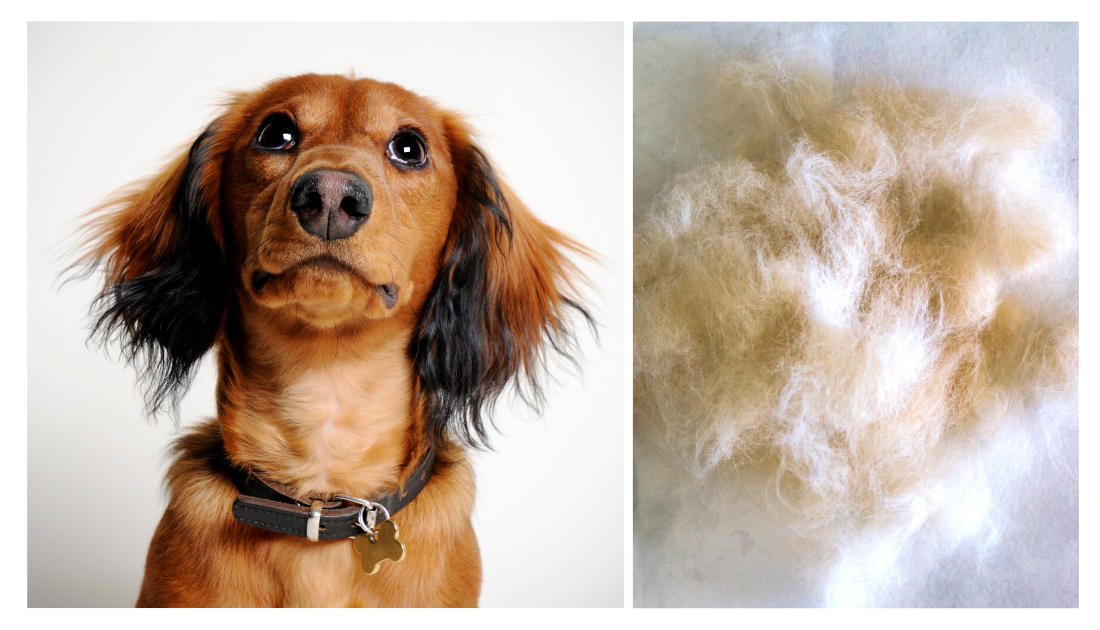Introduction
Owning a Dachshund brings joy and companionship, but managing their shedding can be a challenge. Whether you’re a new or seasoned Dachshund owner, understanding how to handle shedding effectively can significantly impact your home’s cleanliness and your furry friend’s comfort. In this article, we will explore practical tips and methods to manage your Dachshund’s shedding. If you are curious about “do Dachshund dogs shed“, continue reading to learn more and find solutions for keeping both your home and your dog in top shape.
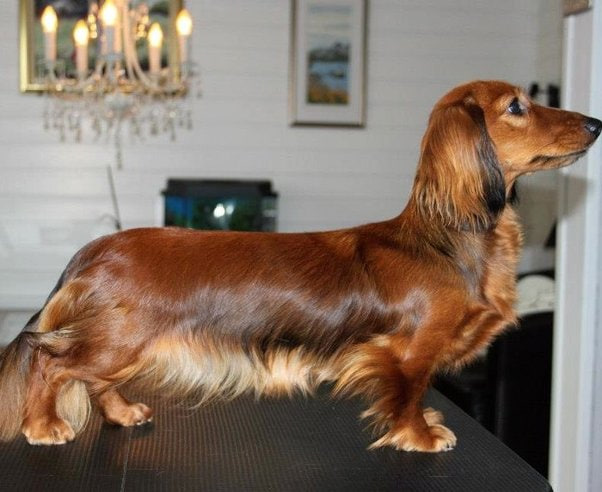
Do Dachshund Dogs Shed?
Dachshunds, like all dogs, do shed to some degree. Shedding is a normal way for dogs to remove old or damaged hair. Dachshunds shed their fur periodically and depending on the type of coat they have.
Seasonal Shedding in Dachshunds
Similar to many other dog breeds, Dachshunds go through seasonal shedding where they shed more fur during specific times of the year, typically in spring and fall. This shedding process results in an increase of loose fur around your house.
During spring, Dachshunds shed their thick winter coats to make way for lighter summer fur. In the fall, they shed their lighter summer coats to grow thicker fur for the winter season.
Being aware of when seasonal shedding occurs can help you prepare and handle the excess fur. Regular grooming during these periods can significantly decrease the amount of loose hair in your home.

Shedding based on their coat type in Dachshunds
Smooth-coated Dachshunds: Do smooth Dachshunds shed? Some owners of smooth Dachshunds may argue that their dogs do not shed much because the hair is so fine that shedding is hardly noticeable. In reality, smooth Dachshunds do shed regularly, but in small amounts; you might only notice it when you clean the house. Regular grooming can help control shedding by brushing out dead hair and spreading natural oils to keep the skin and coat healthy. Brushing your smooth-coated Dachshund once a week with a soft brush can help reduce shedding.
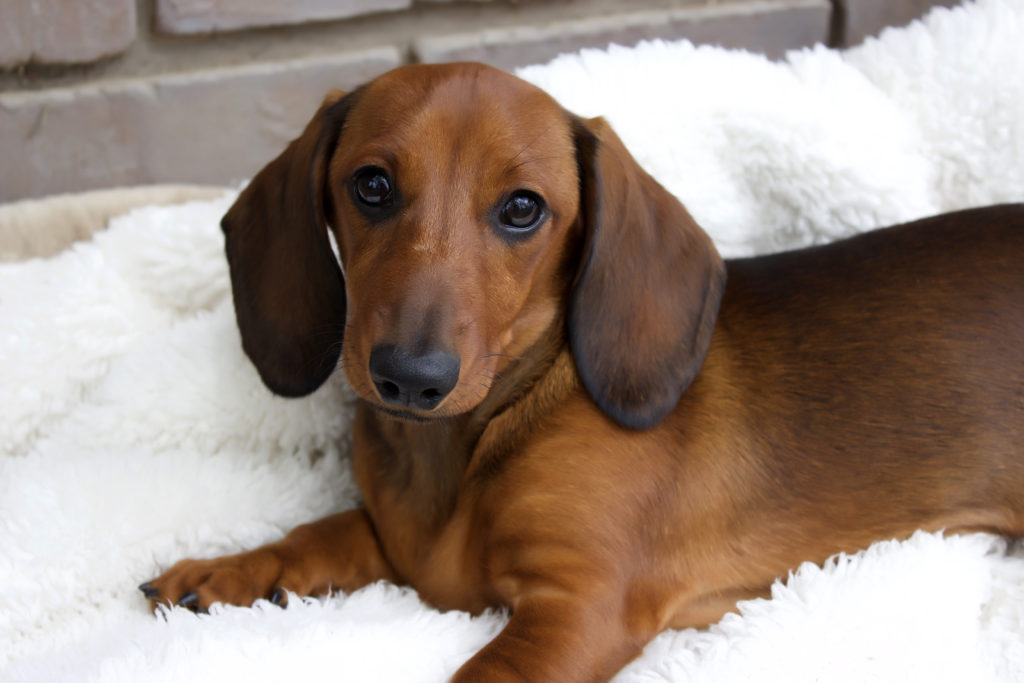
Longhaired Dachshunds: While Dachshunds generally do not shed excessively, longhaired Dachshunds shed the most among the three coat types. Their shedding is more visible due to their thick undercoat. Similar to wirehaired Dachshunds, longhaired Dachshunds shed more noticeably twice a year during seasonal changes. Daily brushing can help manage their shedding. Additionally, their luxurious coats benefit from regular care using a comb with both long and short teeth to remove loose hairs and prevent mats in their dense undercoat.
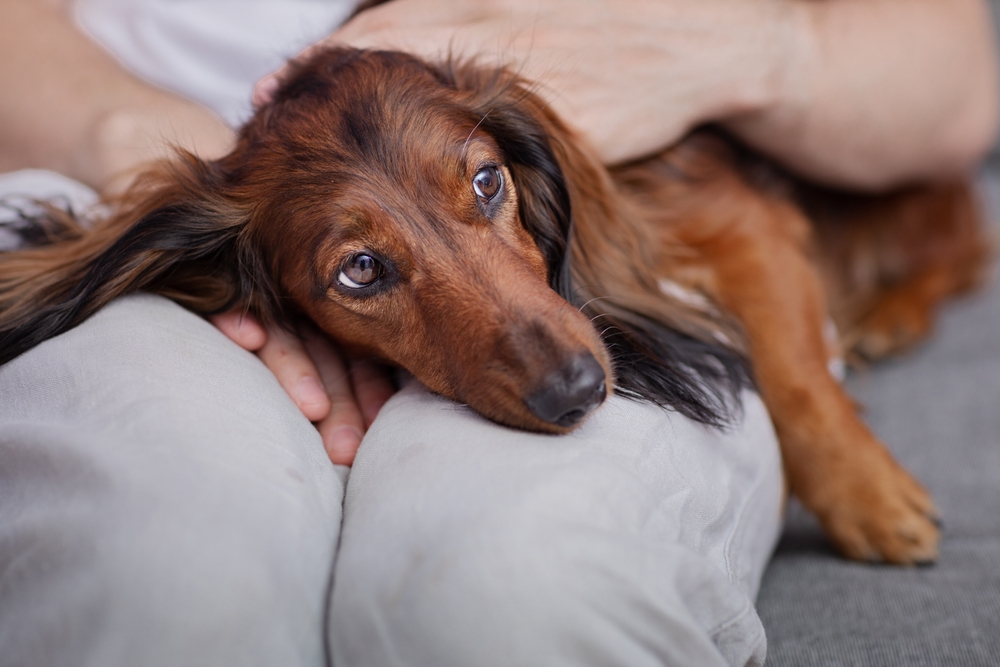
Wirehaired Dachshunds: Wirehaired Dachshunds shed the least among the different coat types, which may be surprising considering their thicker coats compared to smooth Dachshunds. Despite not being hypoallergenic, wirehaired Dachshunds shed minimally and produce less dander, making them a good choice for Dachshund enthusiasts with allergies. They have a dense undercoat, a soft layer beneath their wiry hair, which helps regulate their body temperature. As a result, they shed more in spring and autumn to adapt to temperature changes. Apart from weekly brushing, wirehaired Dachshunds need professional grooming two or three times a year for stripping, a process that removes dead hair at the root to promote new growth and maintain the wiry coat texture.
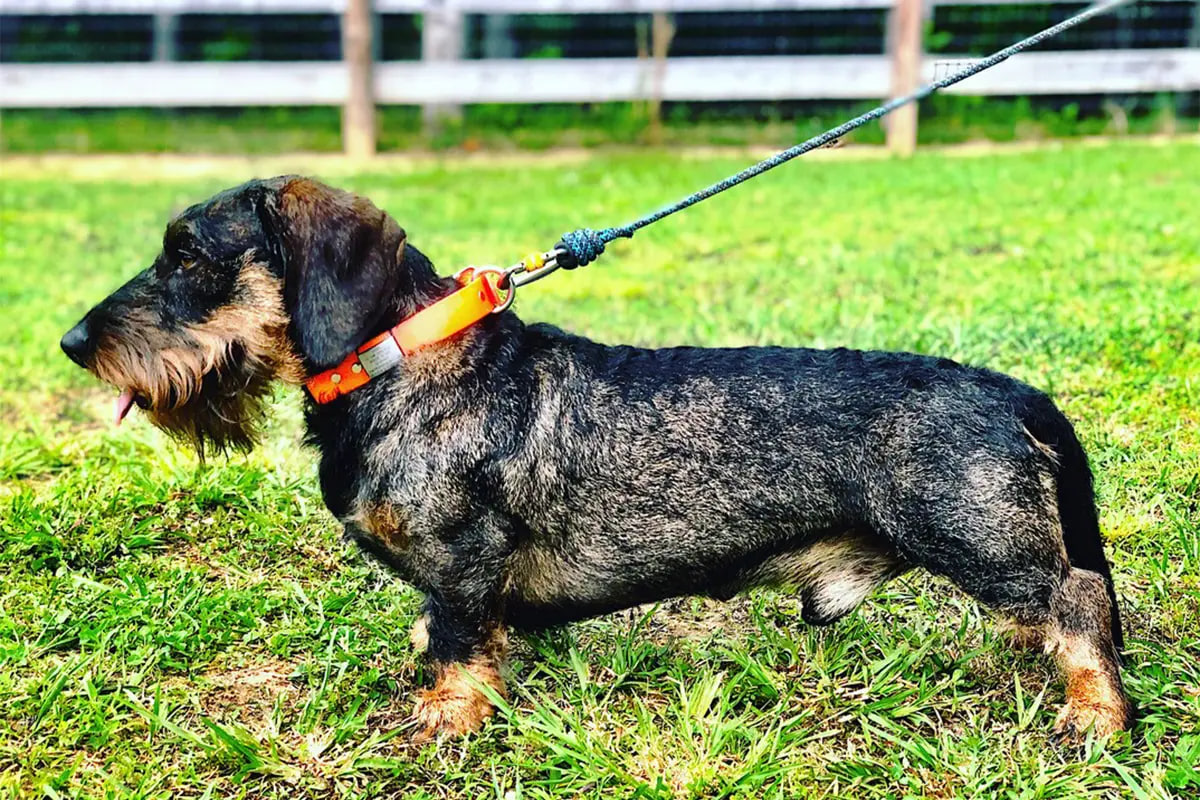
Factors Influencing Shedding
There are various factors that can impact how much your Dachshund sheds. These factors encompass their diet, general well-being, and the season. Additionally, stress and anxiety may play a role in excessive shedding. Recognizing these factors can assist you in identifying the underlying reasons and better controlling shedding.
When to Worry About Excessive Shedding
Although it is common for dogs to shed, excessive shedding could indicate potential health problems like allergies, skin infections, or hormonal imbalances. If you observe bald spots, irritated skin, or notable changes in your Dachshund’s shedding habits, it is crucial to seek advice from a vet for a comprehensive evaluation.
How to Care for Dachshund Fur
Caring for dachshund fur
Maintaining proper grooming practices is crucial for managing shedding and ensuring the health of your Dachshund’s coat. Here are some suggestions for taking care of their fur:
- Regular Brushing – It is recommended to brush your Dachshund’s coat at least once a week to eliminate loose hair and prevent tangling. Longhaired and wirehaired Dachshunds may need more frequent brushing.
- Bathing – Give your Dachshund a bath every 4-6 weeks to keep their coat clean and reduce shedding. Use a mild, dog-safe shampoo to avoid irritating their skin.
- Professional Grooming – Think about scheduling regular trims with a professional groomer for your Dachshund, especially if they have long or wirehair. Groomers can assist in maintaining the coat’s health and appearance.
By adhering to these grooming tips, you can ensure that your Dachshund’s fur stays healthy and minimize shedding in your household.
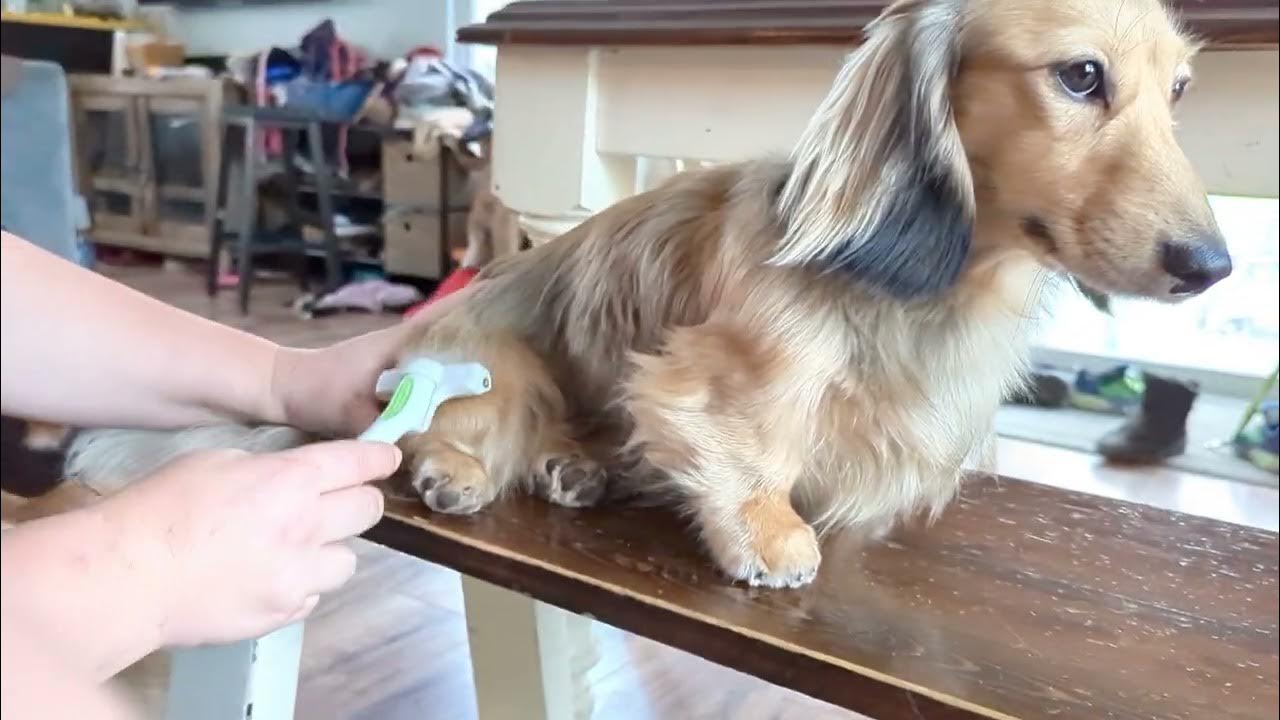
Recommended Grooming Products
Selecting the correct grooming items can have a significant impact on managing your Dachshund’s shedding. Here are some suggested products for caring for your Dachshund’s fur:
- Slicker Brush: A slicker brush is great for eliminating loose fur and preventing tangles in longhaired and wirehaired Dachshunds.
- Deshedding Tool: A deshedding tool can help minimize shedding by accessing the undercoat and removing loose hair, especially during shedding seasons.
- Dog Shampoo and Conditioner: Use a mild dog shampoo and conditioner to maintain your Dachshund’s coat clean and healthy. Look for products that are gentle and free of harsh chemicals and scents.
- Grooming Wipes: Grooming wipes are useful for quick touch-ups between baths. They can assist in getting rid of dirt and loose fur, keeping your Dachshund’s coat fresh.
By investing in appropriate grooming products, you can enhance the grooming experience for both you and your Dachshund.

Health Indicators and Regular Health Checks for Dachshunds
Health Indicators from Shedding Patterns
Observing how your Dachshund sheds can offer important clues about its health. Here are some signs to look out for:
- Excessive Shedding: If your Dachshund suddenly sheds a lot, it could signal an underlying health problem like allergies, skin infections, or hormonal imbalances. It’s best to consult your vet if you notice unusual shedding.
- Bald Spots: Areas where fur is missing on your Dachshund could indicate skin issues, parasites, or other health concerns. If you spot any bald patches, seek advice from a veterinarian.
- Changes in Coat Texture: Differences in your Dachshund’s coat texture, such as dryness or brittleness, might point to nutritional deficiencies or other health issues. A healthy coat should be glossy and sleek.
By monitoring shedding patterns and coat condition, you can catch potential health issues early and get the right care for your Dachshund.
Regular Health Checks for Dachshunds
Taking care of your Dachshund’s health is essential for managing shedding and overall well-being. Regular visits to the vet can help detect and address any health issues that might be causing excessive shedding.
- Yearly Check-Ups: Make sure to schedule annual check-ups with your vet to keep an eye on your Dachshund’s health. These routine exams can catch any potential problems early on and make sure your dog gets the necessary care.
- Vaccinations and Preventative Care: Stay current on vaccinations and preventative treatments for common health issues like fleas, ticks, and heartworm. A healthy dog is less likely to have excessive shedding.
- Proper Diet and Nutrition: Feed your Dachshund a balanced diet with high-quality dog food to support their coat health. Consult your veterinarian for recommendations on what can Dachshunds eat, tailored to your dog’s specific nutritional requirements.
By prioritizing your Dachshund’s health, including understanding how much exercise a Dachshund needs you can reduce shedding and ensure a happy, healthy life for your beloved pet.
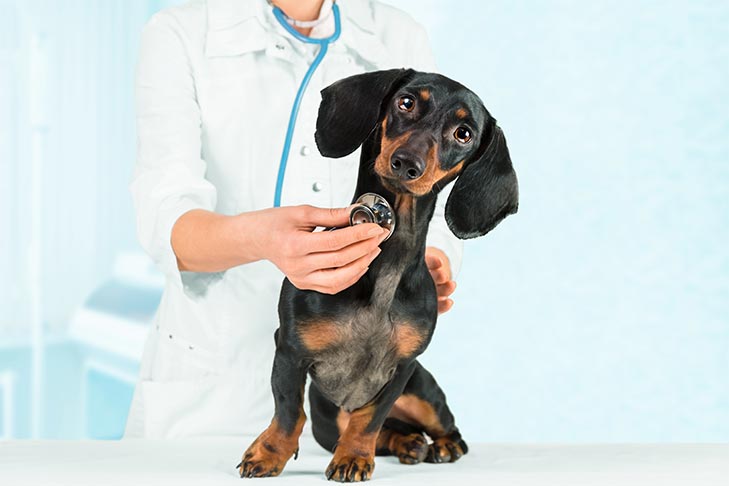
Insights from Other Dachshund Owners
Gaining knowledge from other Dachshund owners’ experiences can offer helpful advice and strategies for dealing with shedding. Here are some tips and insights shared by the community:…
Regular Grooming Routine
A lot of Dachshund owners discover that sticking to a regular grooming schedule is effective in managing shedding. Regular brushing and bathing can have a significant impact.
Vacuuming and Cleaning
Having a high-quality vacuum cleaner specifically made for pet hair can assist in maintaining cleanliness in your home. Consistent vacuuming and cleaning can minimize the buildup of pet hair on surfaces such as furniture and floors.
Using Slipcovers and Blankets
Many pet owners use slipcovers and blankets on their furniture to prevent pet hair from accumulating. These can be taken off and washed easily, which helps in keeping the living area clean.
By heeding advice from experienced Dachshund owners, you can better control shedding and have a tidier home.

Practical Tips and Tricks for Managing Shedding
Managing Dachshund dog shedding requires a combination of grooming, cleaning, and preventive measures. Here are some practical tips and tricks:
Grooming Schedule
Create a routine grooming plan that involves brushing, bathing, and seeking professional grooming when necessary. Being consistent is crucial in managing shedding effectively.
Diet and Supplements
Consult your vet about the “best dog food for Dachshunds“, focusing on essential fatty acids that promote coat health and reduce shedding. Consider adding supplements like fish oil to your Dachshund’s diet to further support their well-being.
Keeping Your Home Clean
To effectively handle shedding in Dachshund dogs and keep your living space clean and cozy, utilize lint rollers, pet hair removers, and vacuums specifically made for pet hair. Make sure to frequently wash your pet’s bedding and blankets to minimize the accumulation of hair.
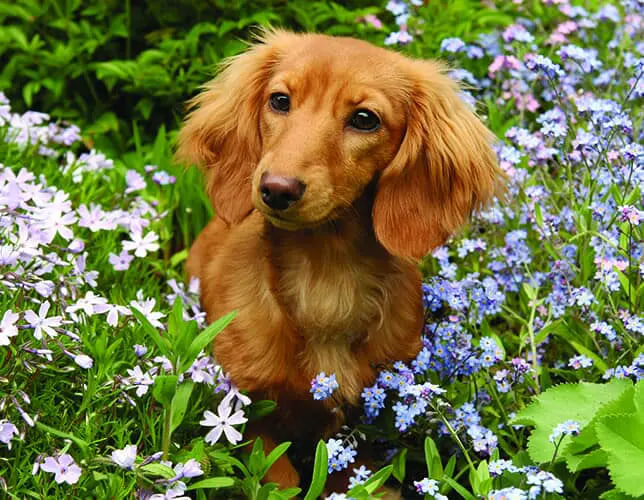
Conclusion
Dealing with your Dachshund’s shedding doesn’t have to be stressful. By sticking to a regular grooming schedule, providing proper nutrition, and seeking advice from other dog owners, you can effectively reduce shedding and keep your home cleaner and healthier. Regular vet visits and understanding your dog’s specific requirements are crucial for keeping their coat in good condition. Remember that each Dachshund is different, so it may take some time and trial and error to find the best care routine for your pet. Curious about Do Dachshund Dogs Shed? Learn effective strategies for managing shedding and improving your dog’s overall health today!

